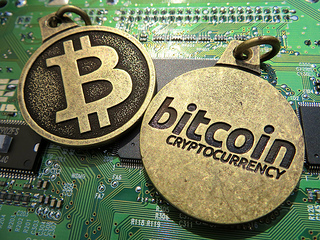 NEWS
NEWS
 NEWS
NEWS
 NEWS
NEWS
![]() Bitcoin’s popularity in China has exploded in recent months, but its not just investors who’ve been tempted by the profit potential of digital currency trading – now it seems that scammers and fraudsters are every bit as keen to get in on the act, having recently made off with millions of dollars worth of Chinese investors’ money.
Bitcoin’s popularity in China has exploded in recent months, but its not just investors who’ve been tempted by the profit potential of digital currency trading – now it seems that scammers and fraudsters are every bit as keen to get in on the act, having recently made off with millions of dollars worth of Chinese investors’ money.
Last month’s shutdown of GBL, a bitcoin trading platform serving Chinese consumers that claimed to be based in Hong Kong, probably wouldn’t have been that noteworthy – except for the fact that more than $4.1 million of user’s money disappeared at the same time that it shut up shop, reports Hong Kong website The Standard. Unfortunately for those who were using the site, by the time they discovered that it was inaccessible on October 26, it was already too late to do anything.
News of this apparent scam only recently came to light when a Bitcoin investor going by the pseudonym of South American Vicuna told Chinese language website IT Times that the money, which belongs to over 500 investors, couldn’t be retrieved. Vicuna said that the day GBL’s website was shut down, its operators posted a message, saying that it had been compromised and asking for investors to transfer money to a specified bank account on order to recover their funds. A few contacts were provided too, but none of these are responding, while the company’s office in Hong Kong is reportedly deserted.
GBL previously claimed that it had secured Hong Kong government approval to operate as a digital currency exchange back in June, and promised buyers substantial returns on their investments with high yields and leverage rates. However, there were plenty of warning signs for investors too, as CoinDesk notes in its own report:
“Commenters were instantly suspicious, noting that the site’s server was based in Beijing despite the site’s claim to being based in Hong Kong. They also pointed out that GBL hadn’t provided straightforward contact information on their site and that the platform used a patchwork of information lifted from other websites.”
“Those weren’t the only warning signs. According to WantChinaTimes.com, which quotes a report from Chinese newspaper Southern Weekly, GBL registered as a company with the Hong Kong authorities on 10th June but never received a license for financial services.”
Vicuna, who runs another Chinese Bitcoin exchange at btcmini.net, says that he’s now organizing an online group of investors who lost money to scavenge for any evidence of where GBL’s owners might be, or who they were. According to him, some investors in Shanghai had tried approaching the local police, only to be rebuffed:
“When I told them GBL’s disappearance, the police asked me what is Bitcoin, and how many coin could people buy with one yuan,” said an investor to IT Times.
The difficulty for the victims is that at the moment, only a few of them can provide screenshots of their account details and money transfers, but none of this is useful unless the police investigate, said Vicuna.
Mishaps like the GBL fraud are one of the biggest hurdles that Bitcoin needs to overcome if it’s to become more widely accepted. A list posted on the BitcoinTalks Forum reveals that there have been more than 30 heists/scams involving the cryptocurrency since 2011, the most recent of which was the robbery of online wallets at Inputs.io, which resulted in more than $1.2 million of the digital currency lost. Unfortunately for those whose Bitcoins were stored using Inputs.io, the online wallet provider doesn’t have enough coin to repay everyone what was lost.
Episodes like these don’t bode well for the future of the digital currency, which some entrepreneurs are pushing as the tool for increased security for digital transactions. While Bitcoins can be stored offline – where they’re much more secure – when it comes to mass use, the likelihood is that most consumers just aren’t savvy enough to know that this is possible.
It’ll be interesting to see if these incidents will fuel a push for increased regulation of Bitcoin, or if they might discourage its growth as a legitimate currency for the masses. For now, consumers are already well used to jumping through the hoops related to online purchases and Bitcoin thus has a long way to go before it hits the mainstream.
Support our mission to keep content open and free by engaging with theCUBE community. Join theCUBE’s Alumni Trust Network, where technology leaders connect, share intelligence and create opportunities.
Founded by tech visionaries John Furrier and Dave Vellante, SiliconANGLE Media has built a dynamic ecosystem of industry-leading digital media brands that reach 15+ million elite tech professionals. Our new proprietary theCUBE AI Video Cloud is breaking ground in audience interaction, leveraging theCUBEai.com neural network to help technology companies make data-driven decisions and stay at the forefront of industry conversations.